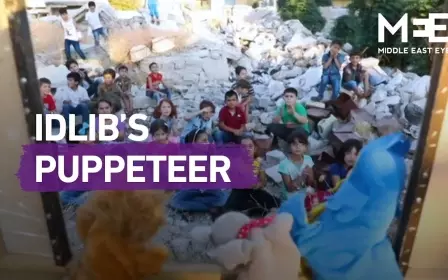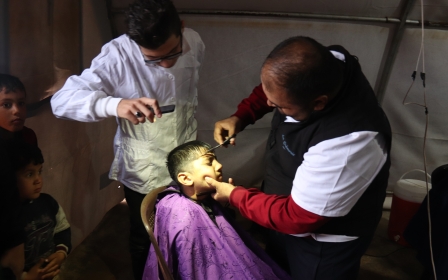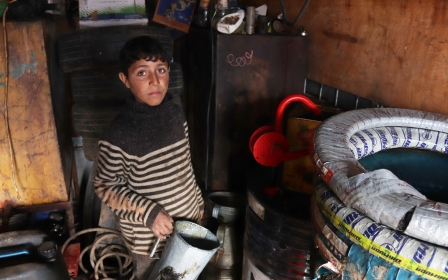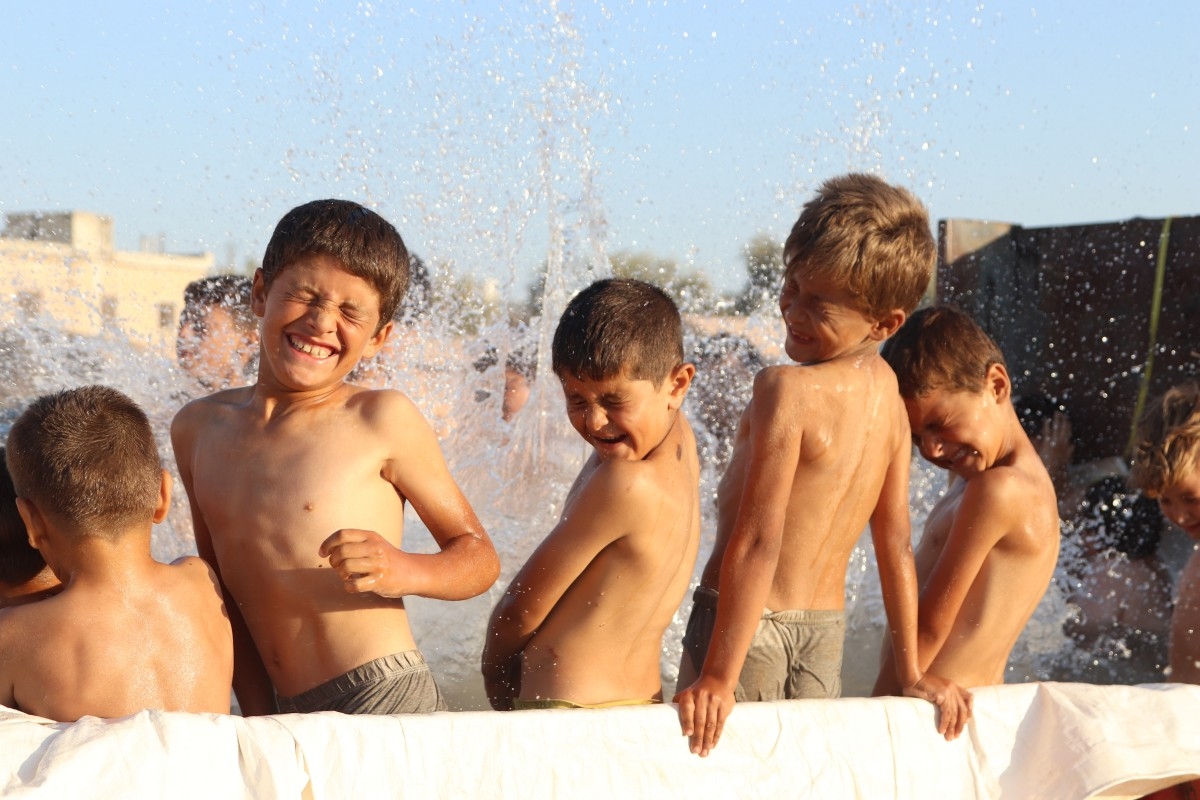
In pictures: Escape vehicle becomes a makeshift swimming pool for Idlib’s displaced
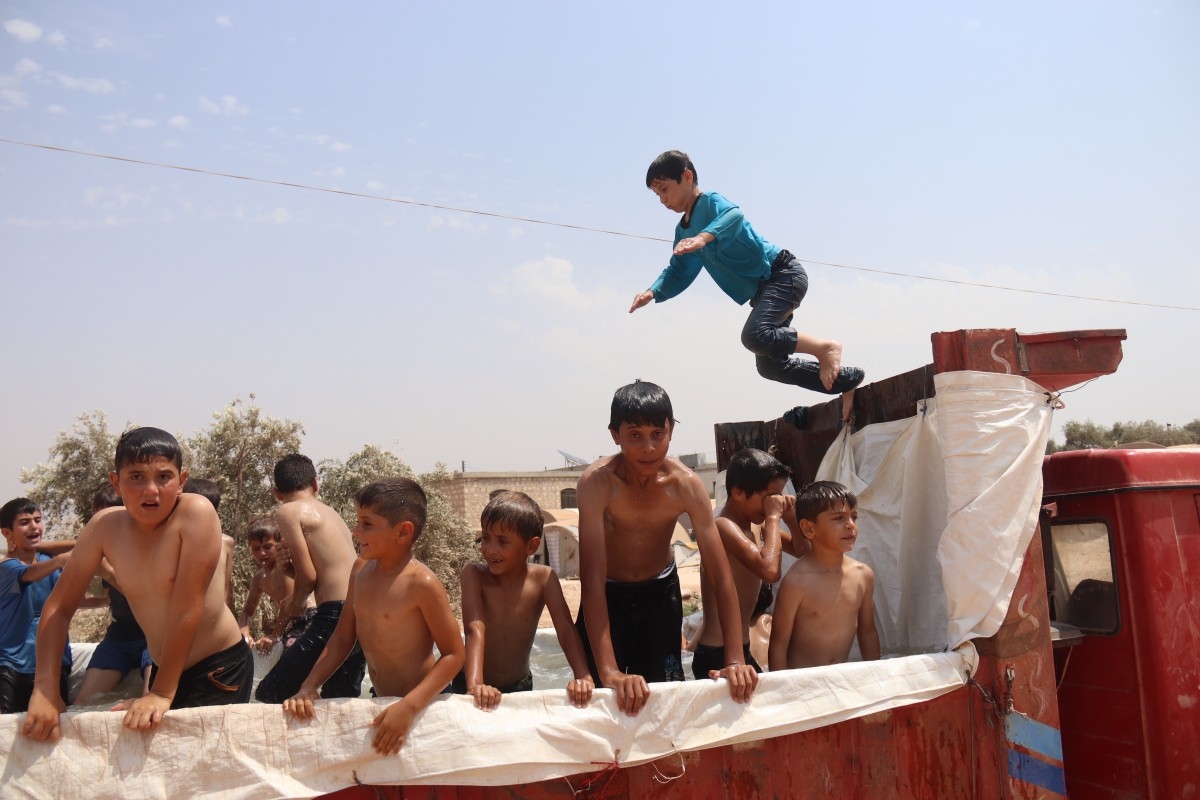
With mostly makeshift tents to protect them from the weather, summer has been hard for the hundreds of thousands of displaced people in camps in northwestern Syria's Idlib province. But one man has been driving around the area with a makeshift swimming pool for displaced children, fashioned out of a tarpaulin pulled across the bed of a truck. The truck’s owner, 64-year-old Nihad Nihar, previously used it to help families reach the camp and find safety from the bombs that drove them from their homes. (All photos by Muhammad Al Hosse)
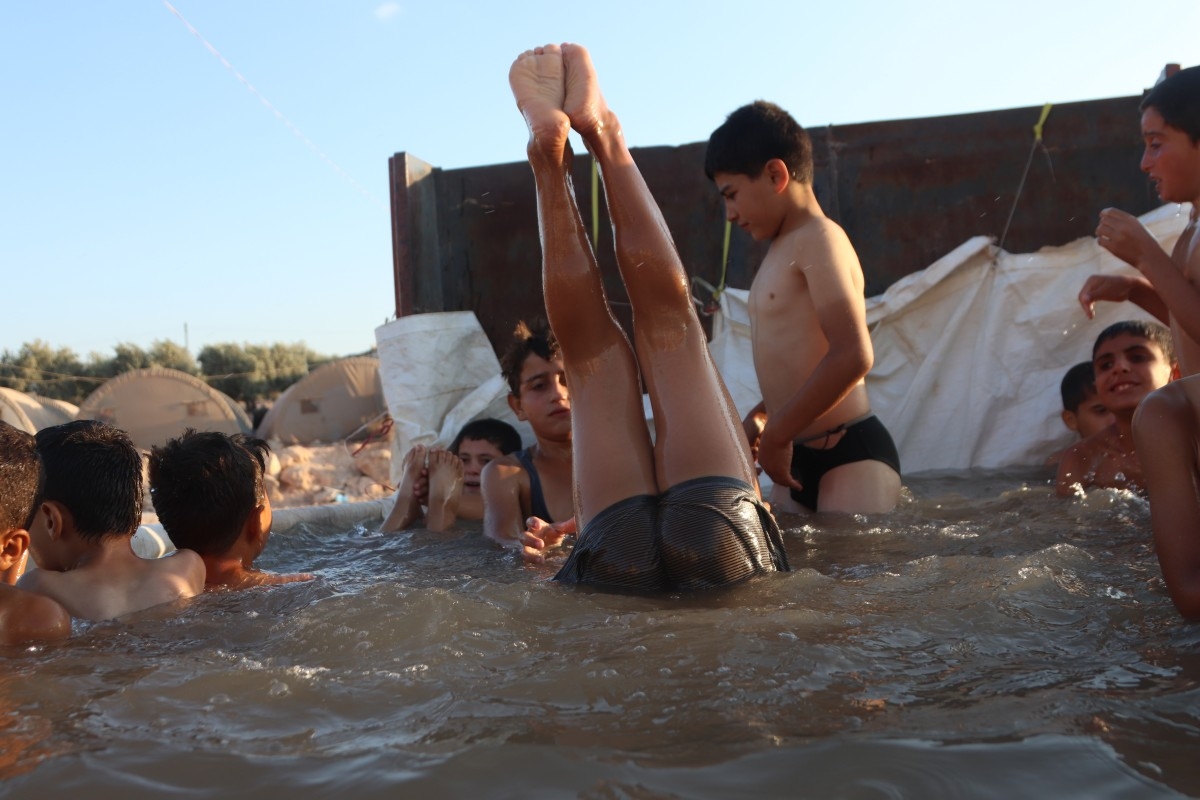
For months, people have suffered from constant heatwaves in Idlib province, the only major pocket of the country still under rebel control. Crammed into tents in a slew of mostly informal encampments, hundreds of thousands of displaced Syrians have few public services to begin with, let alone amenities such as air conditioning and fans to fight off the sweltering summer heat.

Among those now displaced is Nihar himself, who fled his hometown of Kafr Nabl last year, taking the red truck with him. He and others were forced from their homes by a deadly months-long bombing campaign by Syrian government and Russian forces vying to retake parts of rural southern Idlib.
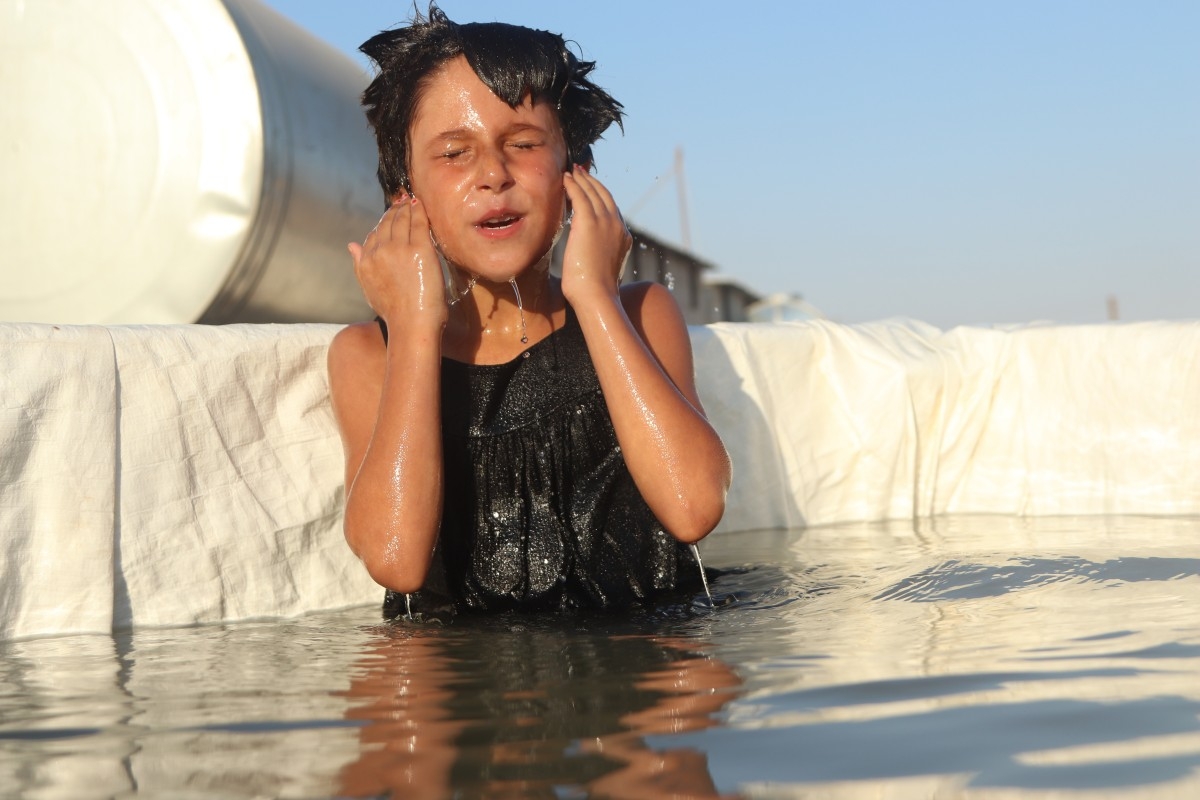
At the time, Idlib had been in the midst of a bitterly cold winter. Bombs killed more than 1,000 people and displaced roughly one million others from their homes as they tried to dodge Syrian government and Russian warplanes while fleeing to safety. Once in the camps, they found relative safety from the bombs - but little else.
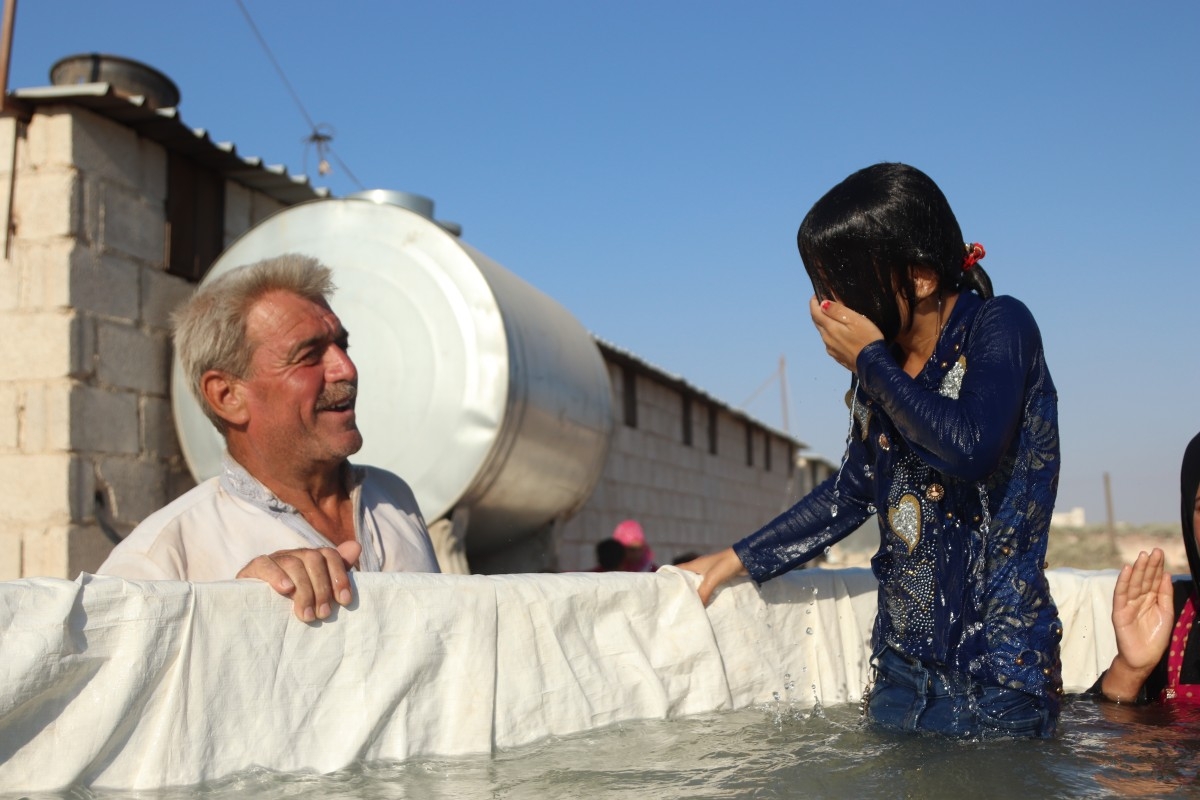
The makeshift pool, Nihar says, is a reprieve for children, both from the heat and from the trauma of displacement. "These children have only known bombs, war and hunger," Nihar, pictured above, tells Middle East Eye. He has been operating the pool since last month, mostly in the informal Mohseneen camp, where he now lives.
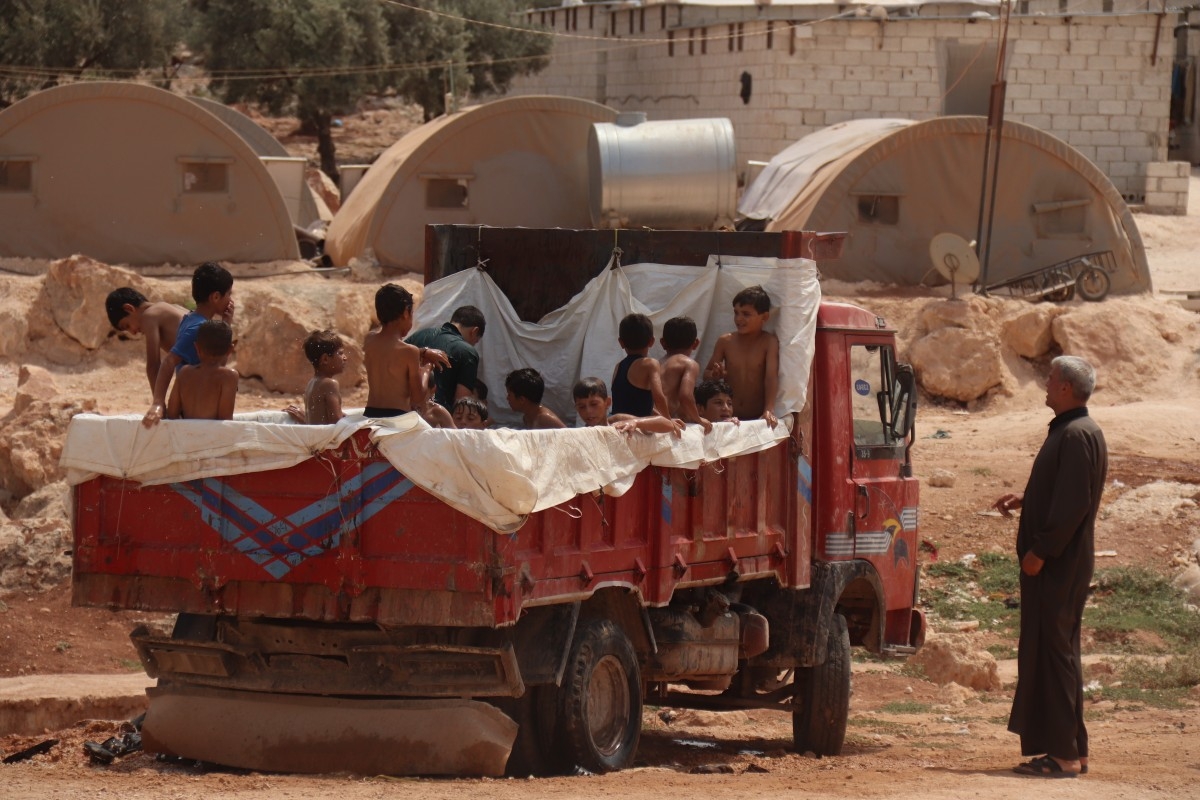
Until early this year, Nihar had used the truck to help transport families fleeing their homes as the bombs rained down over southern and eastern portions of Idlib province. The bombing hit children especially hard - UK-based charity Save the Children estimated one child was killed per day during “conflict escalations” in Idlib in 2019.

A ceasefire since March of this year has largely held, bringing relative peace. That hasn’t meant an easy life for the tens of thousands of children now living with their families in tents and rented homes across northern Idlib province, along the Turkish border. Schools were shut months ago due to coronavirus and basic items such as food and water can be difficult to afford.
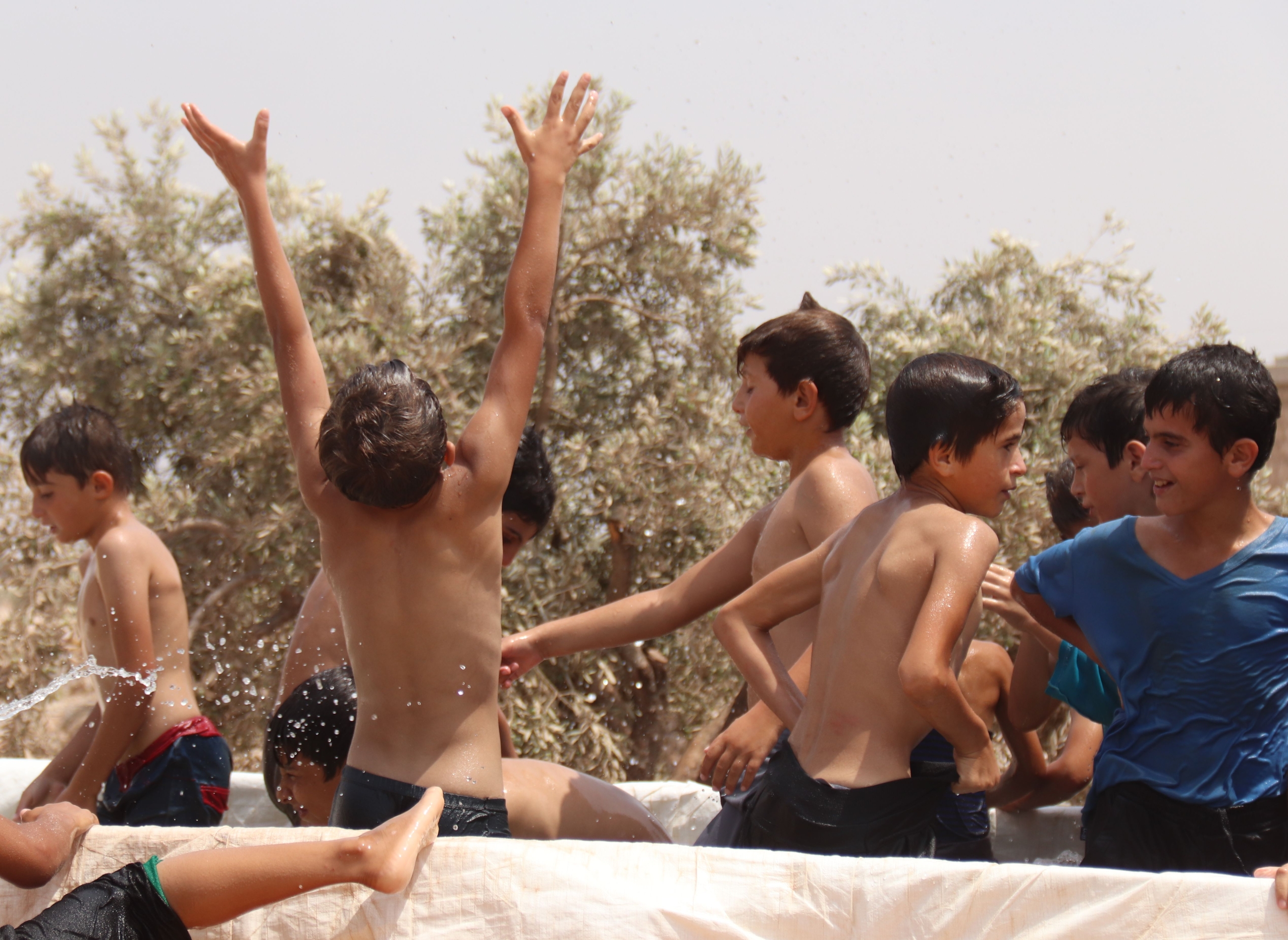
The newer danger of coronavirus is not lost on Nihar - last month, local opposition authorities announced the first recorded cases of the deadly virus in Idlib. With proper services and housing so scarce in Idlib’s camps, social distancing and hygiene measures are difficult, raising fears that the virus could spread rapidly.
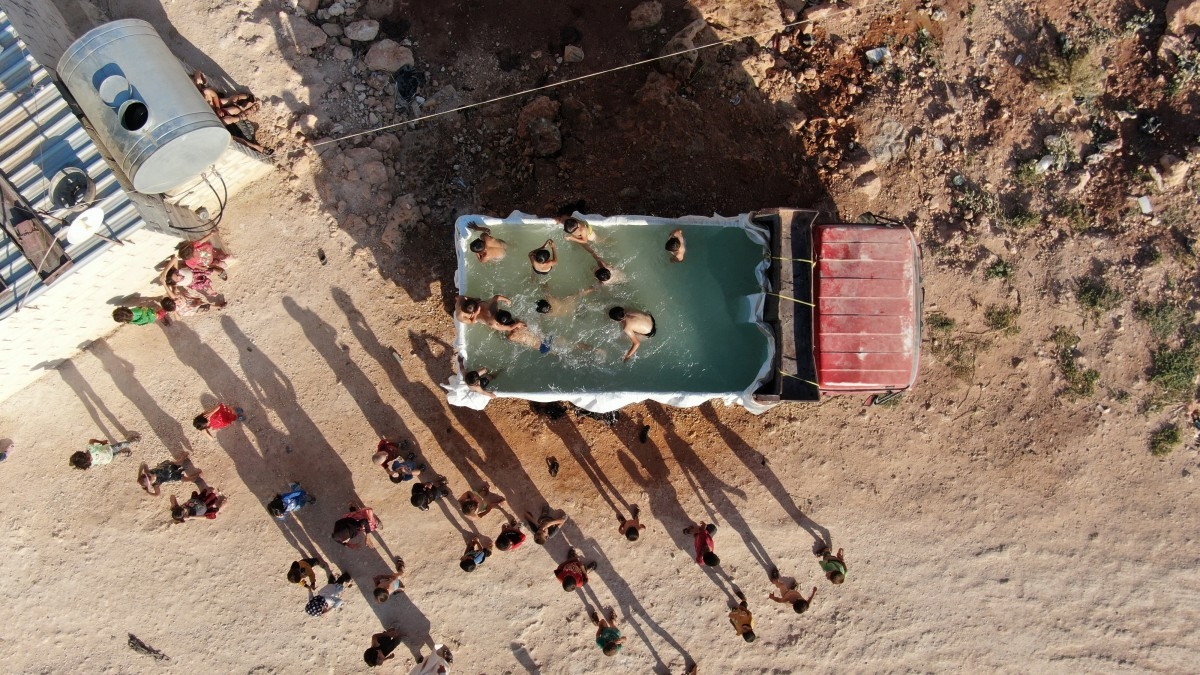
One afternoon in August, children in Nihar’s camp line up for a chance to swim in the pool. Nihar says he only allows about a dozen children in the pool at a time, to protect against potential spread of coronavirus.
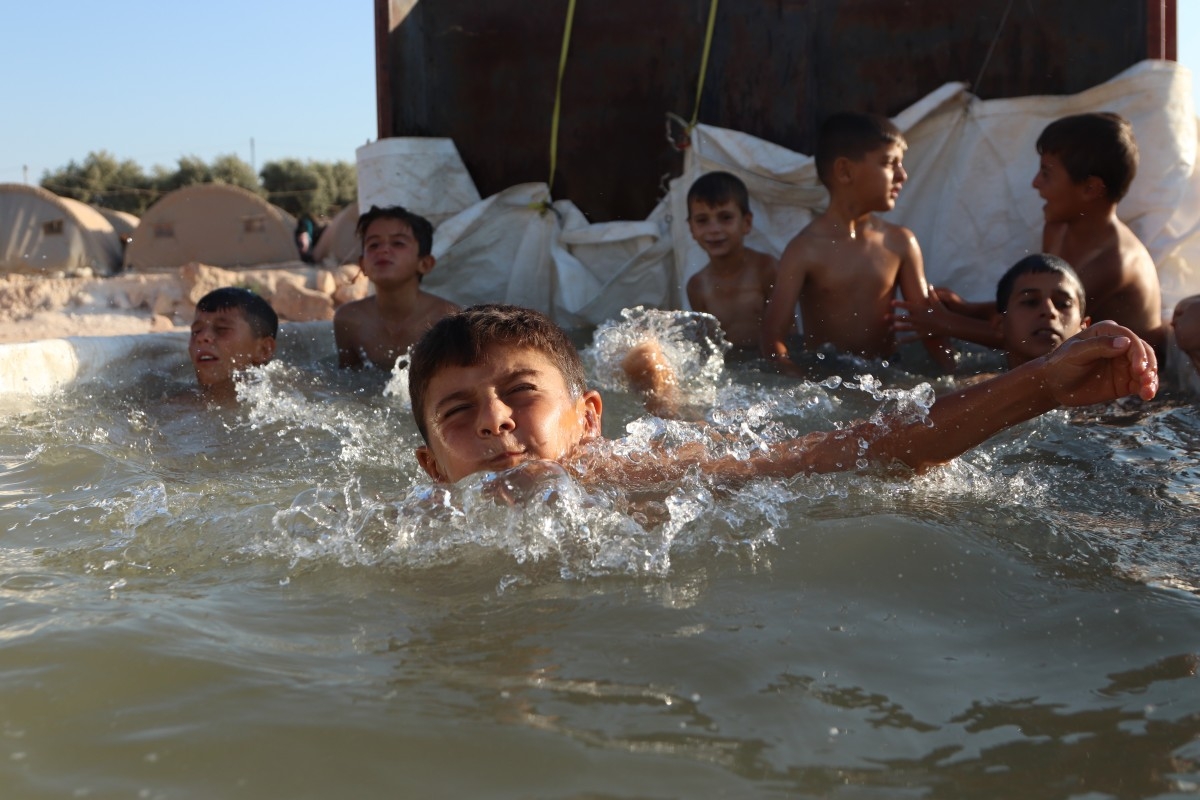
Raed, one parent in the camp, stood outside the truck as his sons, Zain and Ahmad, went for a swim. He says he allows his children to swim in the makeshift pool despite his fears of the virus, as it provides much-needed relief from the heat of a long summer. Their tent does little to stave off the heat, making him worry for his sons. “I hope this [mobile pool] can stay open,” he said. “It’s something good.”
Middle East Eye propose une couverture et une analyse indépendantes et incomparables du Moyen-Orient, de l’Afrique du Nord et d’autres régions du monde. Pour en savoir plus sur la reprise de ce contenu et les frais qui s’appliquent, veuillez remplir ce formulaire [en anglais]. Pour en savoir plus sur MEE, cliquez ici [en anglais].


